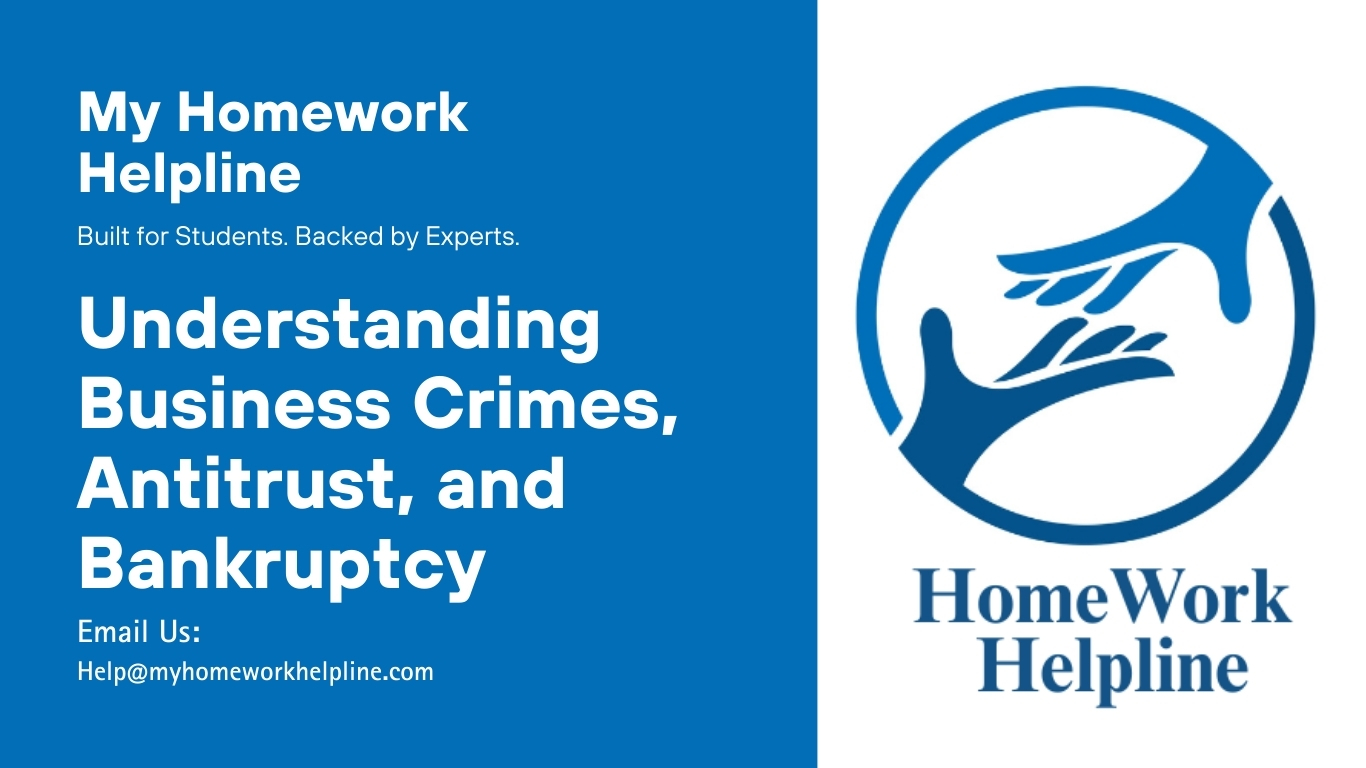Business Crimes, Antitrust, and Bankruptcy: Leniency Programs Essay
The laws of bankruptcy are sometimes seen by those who practice bankruptcy as a kind of ace in the hole that may be used to get around other restrictions in the law. Once a business files for bankruptcy, additional actions are often delayed or merged in the bankruptcy court, and the judge and the debtors-in-possession (DIPs) have extensive ability to dictate what occurs next. However, antitrust laws do not take a second seat to bankruptcy rules, and understanding how antitrust laws might affect a bankruptcy can be vital for avoiding potential problems. The Leniency Program within the Antitrust Division is the essential investigative tool for discovering cartel conduct. Companies and individuals who reveal their participation in a cartel and help with the Division’s investigation of that cartel may be eligible to avoid criminal prosecution, fines, and jail time, provided they fulfill the program’s standards. This paper reviews and analyzes an article about the Leniency Program regarding antitrust laws.
Looking for reliable support with your business law or antitrust assignment? Get professional b]usiness studies homework help and expert assignment assistance tailored to your academic needs. Our team delivers high-quality research papers, essays, and case study analyses, ensuring you achieve top grades. Don’t let complex topics slow you down—access trusted homework guidance and succeed in your business studies courses today!
The article “Recent Antitrust Leniency Program Revisions Examined in ABA’s 2023 Edition of the Antitrust Cartel Leniency and Sentencing Handbook” by Lindsey Collins explores corporate leniency as a tactic for combating criminal behavior. It emphasizes recent advancements in the enforcement practices of the United States Department of Justice (DOJ) and the Antitrust Division and the publishing of the Antitrust Cartel Leniency and Sentencing Handbook by the American Bar Association. Deputy Attorney General Lisa Monaco and top enforcers in the Criminal Division have strongly emphasized the Department of Justice’s Corporate Enforcement Policy (Collins, 2023). This policy, which gives incentives for self-reporting and cooperation, has been underlined by both individuals. However, the article also notes that the Antitrust Division has been running a self-disclosure leniency program for a while and has recently updated its Leniency Policy for the first time since 1993.
Legal experts defending firms or individuals suspected of or charged with antitrust violations may find the Antitrust Cartel Leniency and Sentencing Handbook invaluable. This guide, compiled by seasoned antitrust attorneys, has been singled out as a valuable tool for the legal community. According to Collins (2023), how to apply for leniency, alternatives for individuals who are not given mercy, current prosecution priorities, sentencing considerations, and effective antitrust compliance processes are only some of the subjects in the Leniency Programs Handbook related to these programs.
The expertise and credentials of the writers, such as Leo Caseria and Ann O’Brien, are highlighted throughout the article to establish the credibility and reliability of the guidebook. This means that various antitrust practitioners contributed to the handbook’s content, making it an excellent resource for attorneys who specialize in this field. However, without access to the manual’s exclusive content, completing a complete evaluation of its merits and the extent of its value becomes difficult. Mostly a promotional effort, the article boasts about the writers’ expertise and the depth of the information included in the handbook. The preface aims to spark the attention of attorneys specializing in antitrust cartel leniency and sentencing issues by hinting that the handbook may provide helpful guidance and ideas for navigating these complex areas of law.
In conclusion, the article briefly summarizes the increasing interest in corporate leniency as a tool for combating illegal behavior, particularly in the context of antitrust crimes. The Antitrust Cartel Leniency and Sentencing Handbook is also an invaluable resource for attorneys in this area.
Reference
Collins, L. (2023, June 12). Recent antitrust leniency program revisions examined in ABA’s 2023 edition of the antitrust cartel leniency and sentencing handbook. Antitrust Law Blog. https://www.antitrustlawblog.com/2023/06/articles/cartel-investigations/recent-antitrust-leniency-program-revisions-examined-in-abas-2023-edition-of-the-antitrust-cartel-leniency-and-sentencing-handbook/

